A concentrated and syrupy extract derived from pomegranate juice, pomegranate molasses possesses much the same texture and nearly the same appearance as its name suggests, with a highly viscous and sticky form and a dark red to nearly brown coloring.
Pomegranate molasses is primarily used as a marinade ingredient or as a sauce for fish and meat dishes, especially in the cuisines of Persians, Iranians and other neighboring cultures. Its particular flavor is often described as extremely tart, with a moderate sweetness underlying the otherwise strongly sour taste profile.
The best pomegranate molasses substitutes are pomegranate seeds and pomegranate juice. The best seasoning substitutes to pomegranate molasses are balsamic vinegar, cranberry concentrate, and raspberry jam. The best marinade substitutes to pomegranate molasses are tamarind paste and sweetened lemon juice. The best cocktail ingredient substitutes for pomegranate molasses are strawberry daiquiri flavoring syrup, lime juice, and grenadine.
Why Should Pomegranate Molasses be Substituted?
Pomegranate molasses may require some form of substitution in a recipe for a variety of reasons, ranging form such things as simple unavailability to dietary requirements due to health conditions that make ingesting pomegranate fruit or any of its subsequent products potentially dangerous to an individual.
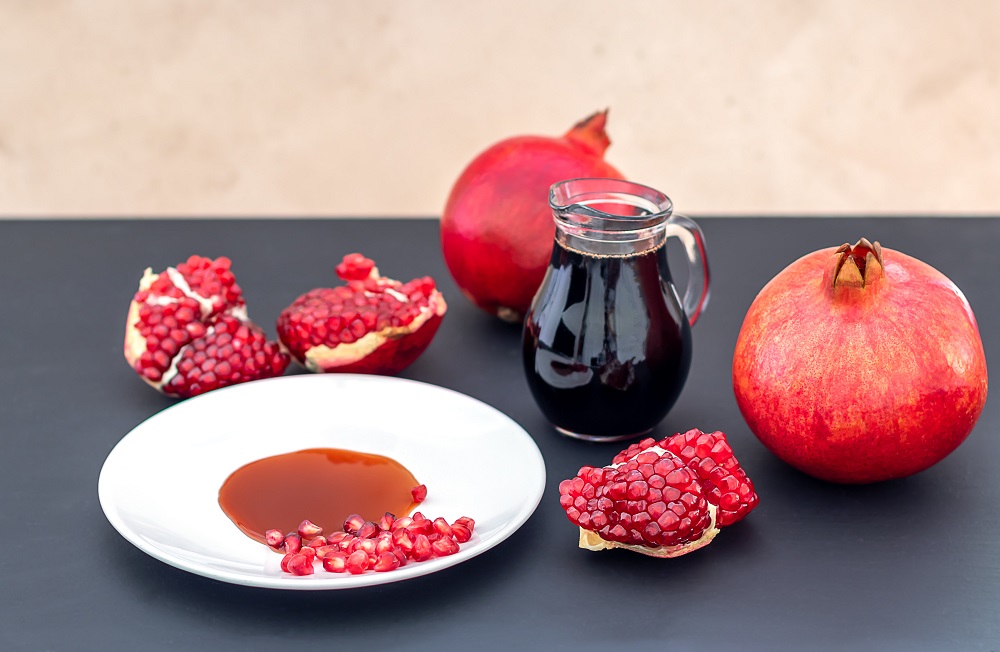
Such things like diabetics requiring glucose control, individuals with pomegranate allergies or certain gastric disorders that make consuming high amounts of sugar unpleasant or potentially dangerous.
Other reasons pomegranate molasses may require some form of substitution are certain ethical beliefs concerning the production and farming of pomegranates, a desire to try something similar but new or even simple personal flavor preference.
Are Grenadine and Pomegranate Molasses the Same?
Despite the similarity in fruit sources, grenadine and pomegranate molasses are actually quite distinct from one another, with a few major key differences making them unable to replace the other, especially in certain recipes that require specific characteristics of grenadine or pomegranate molasses to be present.
Among these major key differences is the significant difference in flavor profile between grenadine and pomegranate molasses, with the former being simply pomegranate-based and syrupy with a distinct sweetness that pairs quite well with a variety of other sour or sweet ingredients.
On the other side, pomegranate molasses is instead considered more mature in flavor and with a more noticeable tartness that is better incorporated alongside other ingredients such as fish or certain savory vegetables, wherein its sourness and fruity body of flavor can act as a complementary ingredient, rounding out the flavor profile of the dish.
Additionally, from a visual perspective, grenadine is considered somewhat lighter and more colorful than that of pomegranate molasses, of which possesses a nearly brown hue of crimson that may be unpleasant aesthetically in certain dishes or cocktails.
Alternative Pomegranate Product Substitutes to Pomegranate Molasses
In the event that the required substitute for pomegranate molasses need only be an alternative ingredient and not in fact be something other than a pomegranate derived product, certain other types of pomegranate related foods and ingredients may act as excellent substitutes instead.
Pomegranate Fruit/Seeds
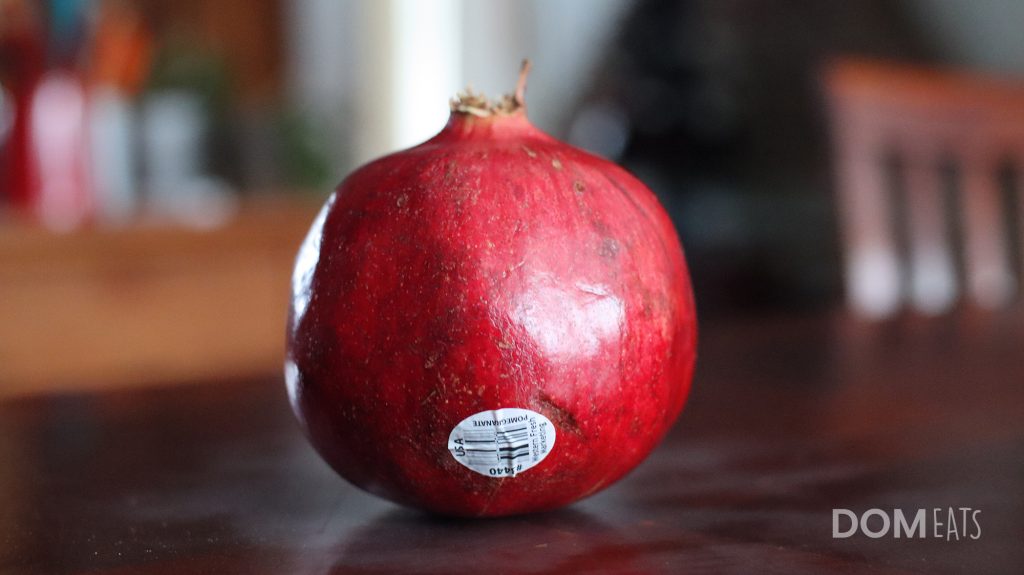
The non-processed source of pomegranate molasses, pomegranate seeds may impart a more diluted and less intense version of the flavors normally found in pomegranate molasses, making them excellent in the event that the recipe finds pomegranate molasses itself too overpowering a taste.
However, a downside to utilizing pomegranate seeds as a pomegranate molasses substitute is the fact that they are generally solid, and do not function like a syrup or sauce the way molasses does, making pomegranate seeds difficult to incorporate into certain dishes or drinks.
This may be remedied by processing the seeds or juicing them in some way, altering their physical form.
Pomegranate Juice
Retaining much of the same flavors as pomegranate molasses, it is important to note that pomegranate juice likely does not possess many of the additional flavoring compounds or extra ingredients most forms of commercial pomegranate molasses possess, making pomegranate juice’s flavor somewhat less intense and seemingly more diluted.
In order to bring the flavor and viscosity of pomegranate juice closer to that of pomegranate molasses, it is possible to place it over low heat with a reasonable amount of sugar added so as to add a stickiness as well as a sweetness that allows it to act as an excellent pomegranate molasses substitute.
Seasoning Substitutes to Pomegranate Molasses
Occasionally being used as a seasoning, pomegranate molasses is said to impart a tart and somewhat fruity flavoring to any sort of dish it is used as a seasoning in, creating a more rounded flavor profile in such things like savory stews and soups.
However, it is quite fortunate that this particular seasoning ability and flavor profile is not native to pomegranate molasses itself, and that quite a few other food products may recreate much the same effect when added to the same dishes.
Balsamic Vinegar
Best used in such dishes like roasted vegetables or certain other meals that require a distinctly acidic yet somewhat sweet flavor, balsamic vinegar is an excellent pomegranate molasses substitute both in the capacities as a seasoning and as a dressing.
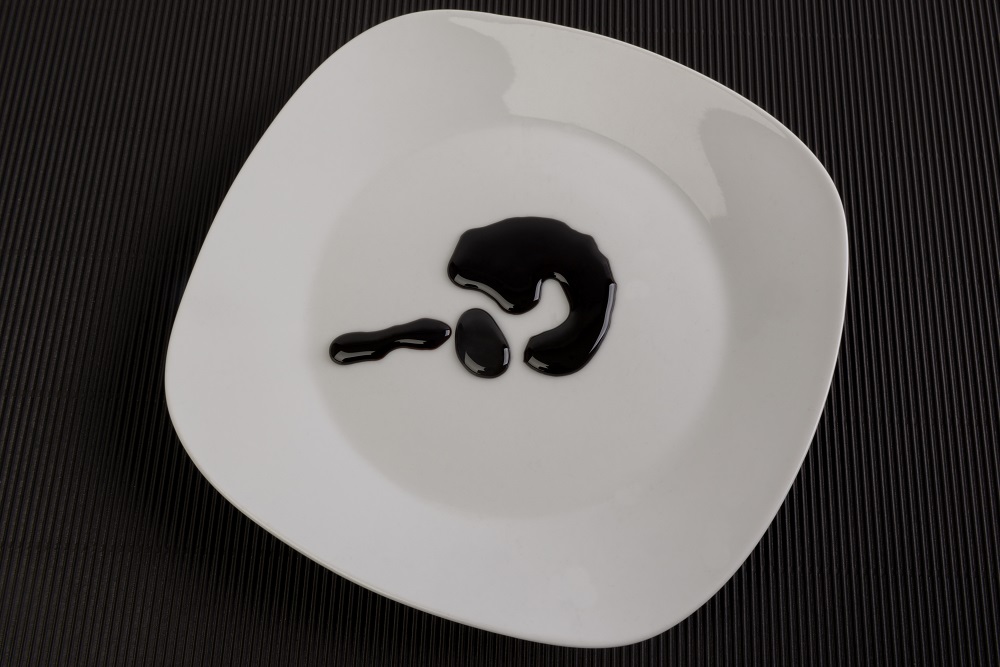
When choosing to substitute pomegranate molasses with balsamic vinegar, it is best to choose the sort of brands that incorporate extra sugar or other sweet tasting ingredients into its product recipe, so as to bring it as close as possible to the relative flavor profile of pomegranate molasses itself.
This may also be done by hand wherein the cook will personally add sugar to the balsamic vinegar, or, in certain instances, even other forms of fruit molasses.
Cranberry Concentrate
Possibly the most similar in relative flavor to pomegranate molasses, cranberry concentrate presents much of the same acidic yet sweet and distinctly tarty flavor notes that is normally sought after in recipes incorporating pomegranate molasses into their ingredient lists.
Depending on its particular form and the sort of uses it presents, cranberry concentrate may require some level of dilution or heating in order to achieve the same physical viscosity and texture as pomegranate molasses.
However, there is no doubt that cranberry concentrate is the best possible substitute for pomegranate molasses in the majority of its uses, meaning it should be first on the cook’s list of possible ingredient substitutes when searching for one.
Raspberry Jam
Somewhat similar to cranberry concentrate in function, raspberry jam may also act as a potential pomegranate molasses substitute, both as a seasoning and as a marinade, though the latter purpose oftentimes requires the incorporation of other, more fluid ingredients.
Raspberry jam can present a comparable but somewhat weaker tartness to pomegranate molasses, oftentimes with a slightly stronger body of sweetness that can complement such things like meats and fish when mixed into the dish or used as a topping.
Raspberry juice and raspberry concentrate may also be used, though care should be taken to ensure that the flavor profiles between raspberry jam and pomegranate concentrate are similar enough, as the majority of raspberry commercial food products contain a variety of differing flavoring compounds that make each individual one unique.
Marinade Substitutes to Pomegranate Molasses
Perhaps one of the most common uses for pomegranate molasses in its countries of origin, pomegranate molasses can act as an excellent marinade in such things like lamb and fish dishes, with its sour and somewhat sweet flavor perfectly complementing the savory and gamey taste profiles of these meats.
And as such, it is quite fortuitous that certain other substitute ingredients do exist that may replicate a majority of the characteristics sought after in pomegranate molasses in concern to its usage as a marinade ingredient.
Tamarind Paste
Distinctly more tart and sour than pomegranate molasses, tamarind paste can nonetheless act in much the same capacity as a marinade in comparison to pomegranate molasses, especially if diluted or certain other sweetening ingredients are mixed with the tamarind paste so as to fully recreate the flavor profile of pomegranate molasses itself.
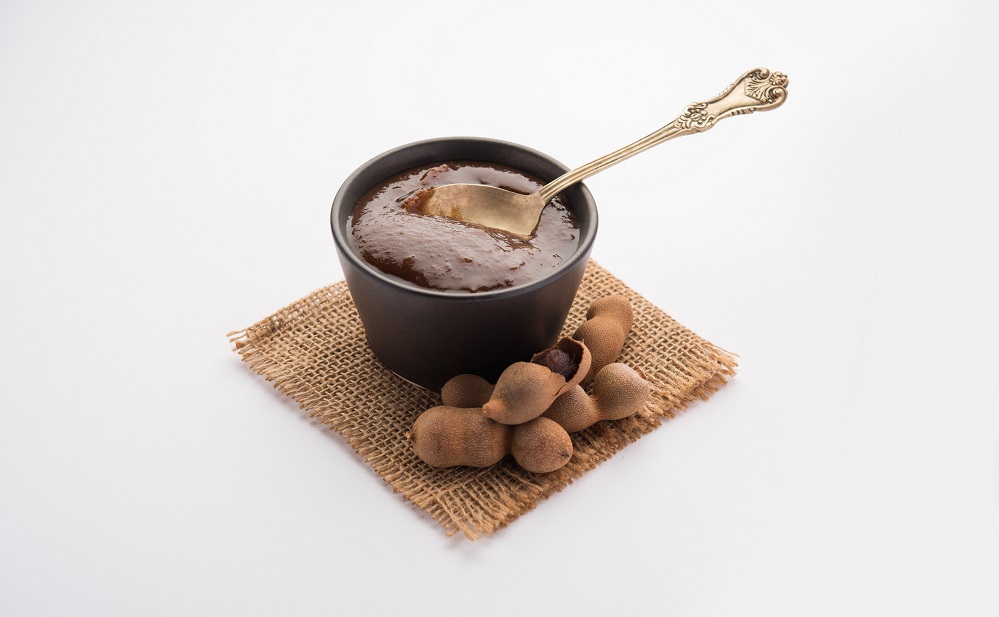
A benefit to the usage of tamarind paste is the similarity in physical form and viscosity to pomegranate molasses, with tamarind paste oftentimes being able to spread and cling to meat in much the same way as the latter ingredient to be substituted.
Ingredients that may be mixed with tamarind paste so as to complete its capacity as a substitute ingredient are corn syrup, honey, sugar-water reductions or even certain other fruit extracts with a strong characteristic of sweetness.
Sweetened Lemon Juice
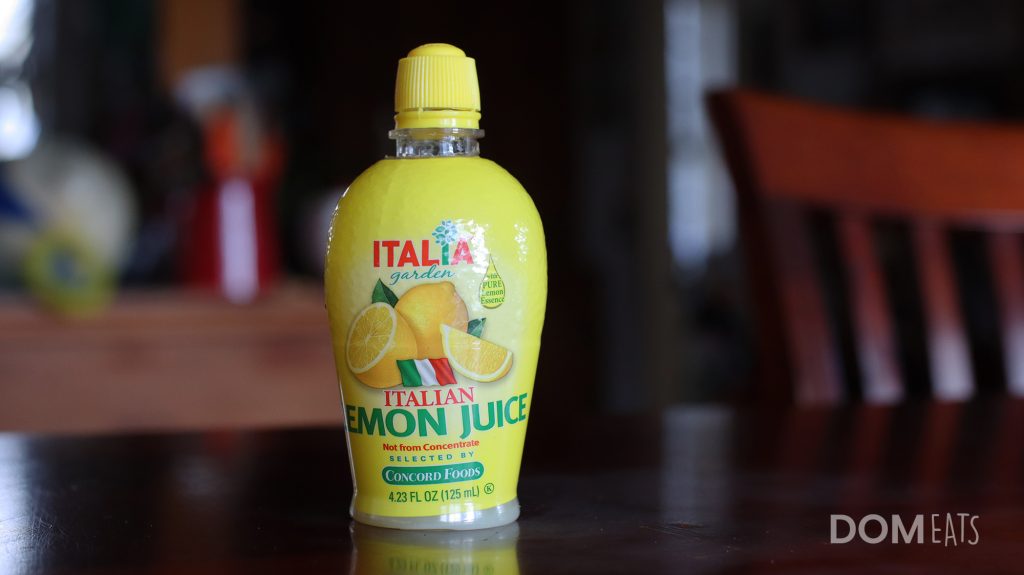
Physically dissimilar to pomegranate molasses, sweetened lemon juice is nonetheless an excellent flavoring substitute in terms of acting as a marinade or even as a general ingredient in practically any recipe pomegranate molasses is normally added to.
This is due to the fact that lemon juice and sugar together recreate the main flavor body of pomegranate molasses, presenting similar levels of sweetness and sourness, especially if mixed in the proper ratios for the very purpose of substitution.
Lemon juice may in fact be a far more effective meat marinade than pomegranate molasses itself owing to its relatively high acidity and its more fluid nature, allowing it to penetrate further into the cellular tissues of the meat so as to incorporate its own tastes more thoroughly throughout.
Cocktail Ingredient Substitutes for Pomegranate Molasses
Occasionally used as a cocktail ingredient, pomegranate molasses is often paired with clear alcohols of neutral flavors that are complemented by the sweet and sour taste profile of the viscous pomegranate extract, especially in certain situations where the crimson to brown color hue of pomegranate molasses adds an aesthetic appeal to the drink.
Fortunately, several other commonly found cocktail ingredients may replicate the same aesthetic appearance or flavoring capacity that pomegranate molasses imparts into an alcoholic beverage, making substituting it quite easy for any well-stocked bartender.
Strawberry Daiquiri Flavoring Syrup
Though technically not a cocktail ingredient so much as it is a cocktail mix product meant to function as a stand-alone flavoring compound, strawberry daiquiri flavoring syrup can act as an excellent substitute to pomegranate molasses in terms of cocktail flavoring.
This is due to the similarity in the relative flavor profiles of the two ingredients, with certain brands of strawberry daiquiri flavoring syrups possessing a similarly tart and slightly sweet flavoring that pairs quite well with clear and neutrally flavored alcohols.
However, it is important to remember that strawberry daiquiri flavoring syrup often contains some level of alcohol in its compound mixture, possibly increasing the relative concentration of the cocktail, depending on the volume of other ingredients.
Lime Juice
Slightly sweeter but no less tart than lemon juice, lime juice is a classic cocktail ingredient in cases wherein the recipe calls for some level of sourness be incorporated into the drink’s flavor profile, something pomegranate molasses is also utilized quite often for.
Lime juice may substitute pomegranate molasses in a two to one ratio wherein two tablespoons of lime juice is the direct equivalent of one tablespoon of pomegranate molasses. This is due to the fact that pomegranate molasses has a significantly more concentrated intensity of flavor per volume, requiring lime juice to double its own volume simply to match said intensity.
Grenadine
Essentially the sister ingredient of pomegranate molasses, grenadine is derived from much the same pomegranate seeds as the latter ingredient to be substituted, making it an excellent substitute as far as cocktails and other alcoholic beverages are concerned.
However, grenadine is oftentimes found to be somewhat sweeter and less sour than pomegranate molasses, especially when used as a standalone ingredient instead of combined with a variety of other cocktail ingredients.
As such, it is best to use grenadine in recipes that normally combine pomegranate molasses or pomegranate concentrate with a few other ingredients that help cover up the somewhat weaker tartness of grenadine.
References
1. Ministry of Culture and Tourism Republic of Azerbaijan (2013). Kerimli T; Kerimov E; Ramazanova A (eds.). Azerbaijani Cuisine (A Collection of Recipes of Azerbaijani Meals, Snacks and Drinks) (PDF). Baku: «INDIGO» print house. p. 131. ISBN 978-9952-486-00-1.
2. M. Viuda-Martos, J. Fernández-López, and J.A. Pérez-Álvarez (2010) – “Pomegranate” (Comprehensive Reviews in Food Science and Food Safety)
3. Salvatore Calabrese (2002). Complete Home Bartender’s Guide. Sterling Publishing Company, Inc. p. 76.
4. INCEDAYI, Bige & Tamer, Canan & Copur, O.U.. (2010). Aresearch on the composition of Pomegranate molasses. Journal of Agri. Fac.. 24. 37-47.

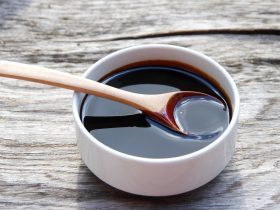

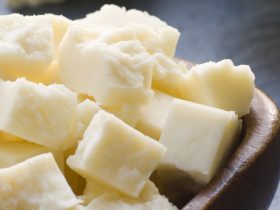

Hi, I'm Dom
Dom Eats was started to help other people fall in love with food. While cooking can feel intimidating, it doesn't have to be.